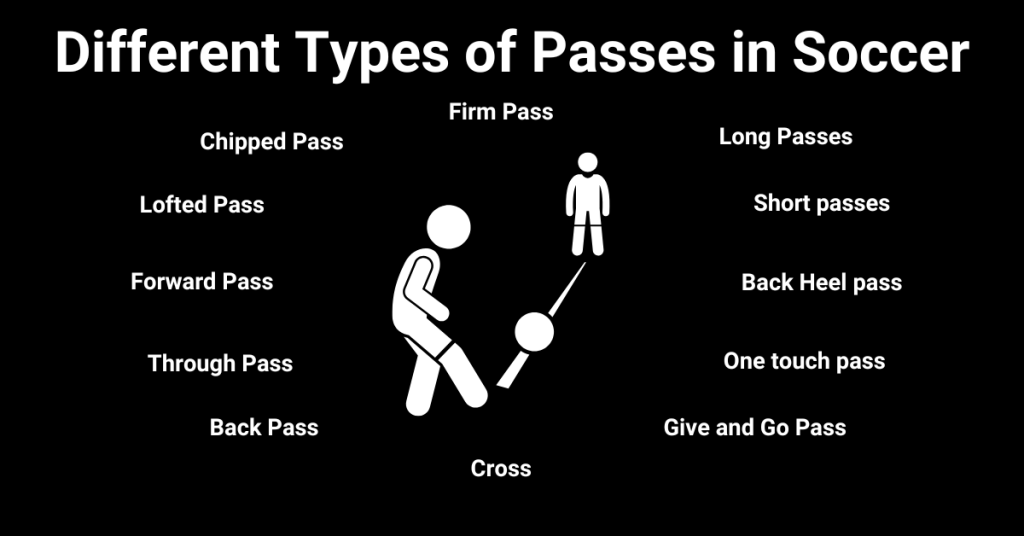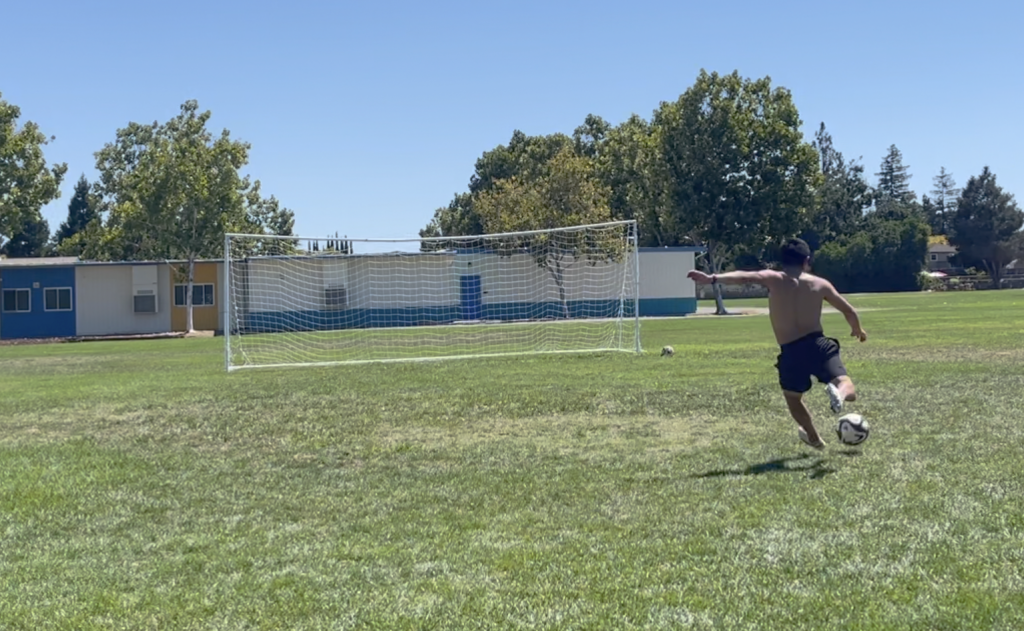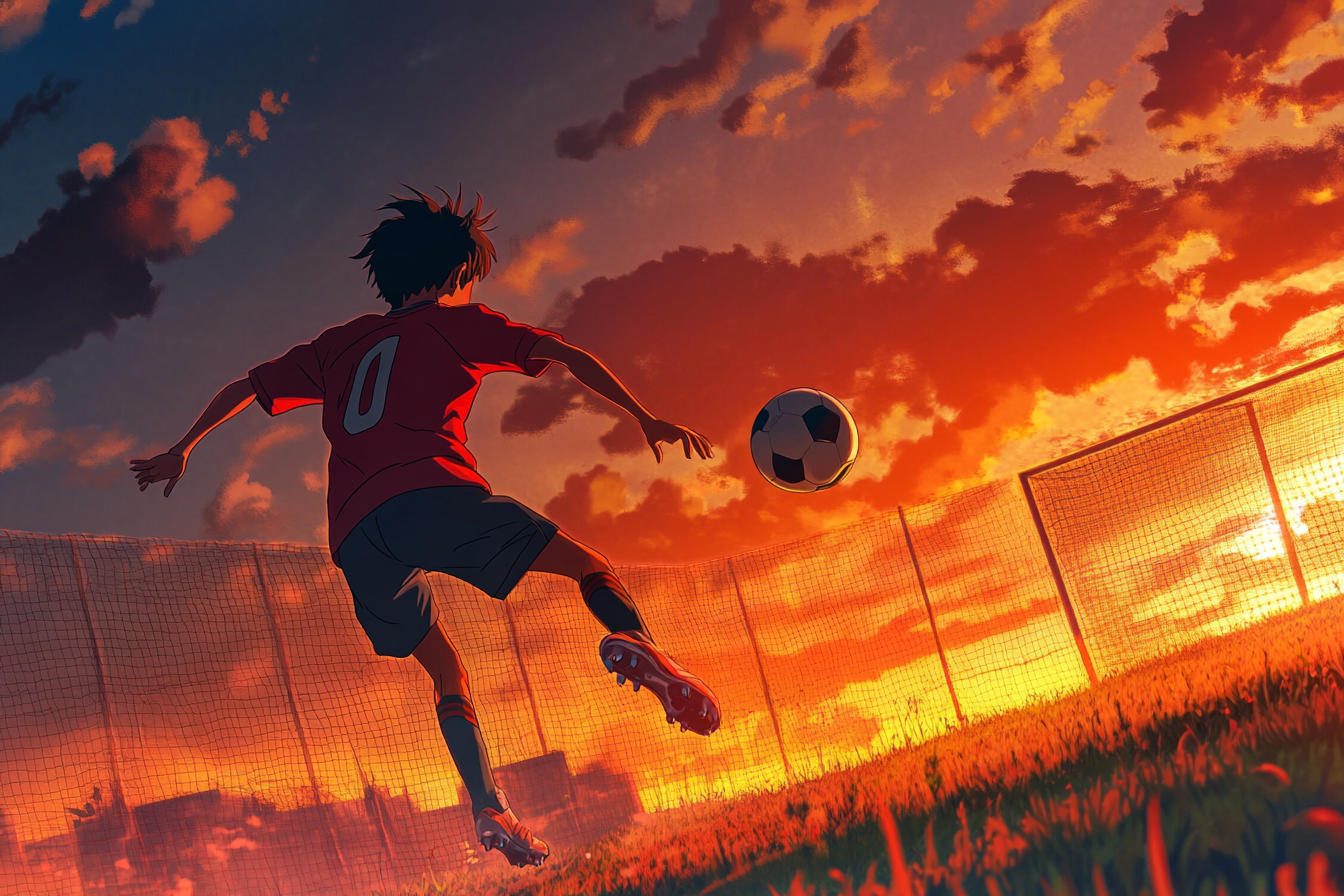Top 15 Most Important Soccer Skills Every Player Must Master
What separates a World Cup champion from a weekend warrior isn’t talent alone – it’s more about mastering the same fundamental soccer skills that every player has been practicing since they were young, kicking a ball in their backyard. High-level players and coaches understand that the fundamentals remain the same at every level and age group.
The main difference lies in how well, how fast, and how consistently players can execute these skills under high levels of pressure and game speed. The higher level you go, the more you will have to choose a specific skillset and stand out to get a chance to play at that level, although you will need a strong foundation in all skills.
As someone with 15+ years of playing experience across club, high school, college, and top amateur leagues, organizer of adult recreational leagues, and private trainer with a U.S Soccer Grassroots License, I’ve seen firsthand how these fundamentals separate good players from great ones at every level and how they are the foundation to becoming a better player.
What are the Most Important Soccer Skills of the Game?
Whether you’re a young player dreaming of scoring goals in a professional stadium or simply want to enjoy the game more when you play with your friends, these 15 fundamental skills will give you the power to control the ball, outmaneuver opponents, and lead your team to victory.

Speed
Speed is one of the first skills that you need to develop, and this can be either physical or mental speed. Some players succeed with blazing fast pace, while others find more success with rapid decision-making under pressure.
The key is developing the ability to change direction, outrun opponents, and think faster than the game itself to create scoring opportunities.
Game IQ
Game intelligence is made up of a variety of skills that can each have their section, but still fall under game IQ. Spatial awareness, risk assessment, decision-making, and tactical understanding allow players to position themselves perfectly relative to the ball, their teammates, and opponents on the field.
Smart players know how to find empty space, think several steps ahead of the play, and create angles with teammates to move as one unit during important moments of the game.
Vision
Vision is another important skill that all players need because it determines how well they can play and control the game situation. This ability involves constantly looking around, which is called scanning, to gather information about where opponents, teammates, and open space are located before you even receive the ball.
Players with great vision can anticipate what will happen next in this fast-paced team sport and make better decisions than others.
Decision Making
Decision-making is also one of the most important skills because you can have great ball control and technical skills, but that means nothing in a game if you’re not making the right choices and you’re not making an impact. Every kick of the ball requires a decision, whether to pass to teammates, dribble past opponents, shoot to score goals, or protect possession in the middle of the field, and there are only two choices: the right choice and the wrong choice.
With that being said, if you make a mistake and do not make the right choice once, the key is to quickly learn from it, adjust, and make the correct decision the next time—because consistency in decision-making is what truly elevates a player’s impact on the game.
Creativity
Creativity in soccer refers to having variability, or having multiple solutions to the same problem. It’s about seeing opportunities that others might miss, like delivering an unexpected pass, using an unorthodox dribble, or improvising under pressure to keep the play alive.
Creative players can adapt more easily when defenders try to stop their moves; they’re always finding new ways to play around obstacles and create fun, action-packed moments.
Ball Control
Ball control refers to how well players can manipulate the ball using different parts of their feet and bodies during gameplay. This fundamental soccer skill allows you to receive passes cleanly, maintain possession when opponents apply pressure, and set yourself up for your next play or scoring opportunity.
Mastering ball control gives you the power and confidence to play in tight spaces and help your favorite team keep possession of the ball.
First Touch
First touch is similar to ball control, but it refers specifically to the first time you make contact with the ball when receiving a pass or controlling a loose ball during gameplay. A perfect first touch can help you beat opponents, maintain ball control under pressure, or create immediate scoring goal opportunities.

Passing
Passing is the fundamental soccer skill that allows players to move the ball around the field and maintain control while advancing toward the opponent’s goal. Good passing involves accuracy, proper weight on the ball, and timing to ensure the ball gets to its destination.
There are many different types of passes, such as short passes, long balls, through passes, and crosses, and it is important to master all because each one is used in different situations to maintain possession, break defensive lines, and create goal-scoring opportunities.
Juggling
On the other hand, a poor first touch wastes precious time and can turn a promising attack into a turnover, which is why players of every age must train and master this as early as possible.
Juggling involves keeping the ball in the air using your feet, thighs, chest, and head without letting it touch the ground during practice sessions. While players might see this as just a fun trick, juggling develops crucial soccer skills like touch, coordination, creativity, and familiarity with how the ball moves off different body parts.
This ability translates directly to better control during games and helps players develop the soft touch needed to play at higher levels.
Dribbling
Dribbling is the soccer skill of moving with the ball while keeping it under control and running around opponents on the field. This ability allows young kids and experienced players to advance up the field, create space for shots or passes, and maintain possession when teammates aren’t in good position.
Great dribblers who train this skill can use any foot as needed, use changes of pace and direction to keep defenders off balance, and create fun, exciting moments that lead to victory.
Skill Moves
Skill moves are specific dribbling techniques that every soccer player needs to train to beat opponents in one-on-one situations and escape pressure. Whether you’re young kids learning to play or experienced players competing in action-packed tournaments, having reliable moves like the body feint, step-over, and ball roll in your arsenal is crucial.
These soccer skills become most effective when you practice them against real pressure with both feet and combine them with proper timing and the power to change direction quickly.
Shooting
Shooting is the soccer skill of striking the ball toward the goal in an attempt to score a goal. This ability requires good foot positioning, balance, and the mental focus to finish chances when they present themselves during a match or training session.
Players who train their shooting with both feet from various positions become a constant threat and force opponents to respect their ability to score goals.
Turning
Turning refers to your ability to receive the ball and quickly change direction while maintaining control and creating new opportunities to play. This soccer skill allows you to escape pressure from opponents, find new passing angles to teammates, and transition from receiving to attacking in one smooth motion.
Players who master turning can play with their backs to the goal in the middle of the field and still be effective in creating scoring chances for their favorite team.
Defending
Defending involves taking the ball away from opponents through proper positioning, timing, and technique without committing fouls that could cost your team. This soccer skill requires patience, anticipation, and the ability to read what opponents plan to do before they kick the ball or change direction.
Good defenders know when to pressure, when to contain, and how to protect their team’s goal while looking for opportunities to win possession of the ball and start a counterattack.
Heading
Heading is the technique of striking the ball with your head to direct passes, clear dangerous situations during corner kicks and throw-ins, or score goals. Proper heading technique involves timing your jump, using your core for power, and keeping your focus to accurately direct the ball where you want it to go on the field.

Final Thoughts
These 15 soccer skills form the complete foundation that every player needs to succeed, from technical abilities like ball control and dribbling to mental aspects like game IQ and decision-making. Each skill builds upon the others – great vision helps with passing, a good first touch allows for better dribbling, and smart defending creates opportunities for counterattacks that lead to scoring goals.
Players who focus on training these fundamentals will develop the confidence and ability to play at higher levels, while experienced athletes can use this guide to identify areas for improvement in their game.
FAQ
What are the most important skills in soccer?
The most important skills in soccer, or football, include the ones on this list, such as speed, game IQ, vision, decision making, creativity, ball control, first touch, juggling, dribbling, skill move, passing, shooting, turning, defending, and heading. If you want to play soccer, these are the most important skills to focus on improving.
What is the hardest soccer skill?
One of the hardest soccer/football skills to do in real time is the elastico. It sounds easy because all you do is hit the ball with the outside and then inside of the foot very quickly, but to pull it off fluidly is hard, especially against an opponent.
To help yourself get better at this skill, or any skill, you can film yourself, get the video, and watch it on your computer.
How can I improve my soccer skills at home?
To improve your soccer skills, you don’t need to be in the World Cup or action-packed soccer tournaments—many drills can be done right at home. All you really need is a ball, your bare feet, and some extra equipment like cones, a wall, or a rebounder, and you’re ready to start improving. With consistent practice, you’ll sharpen your ability to change direction, protect the ball, and score goals—giving you the ticket to lead your team to victory in any game.

